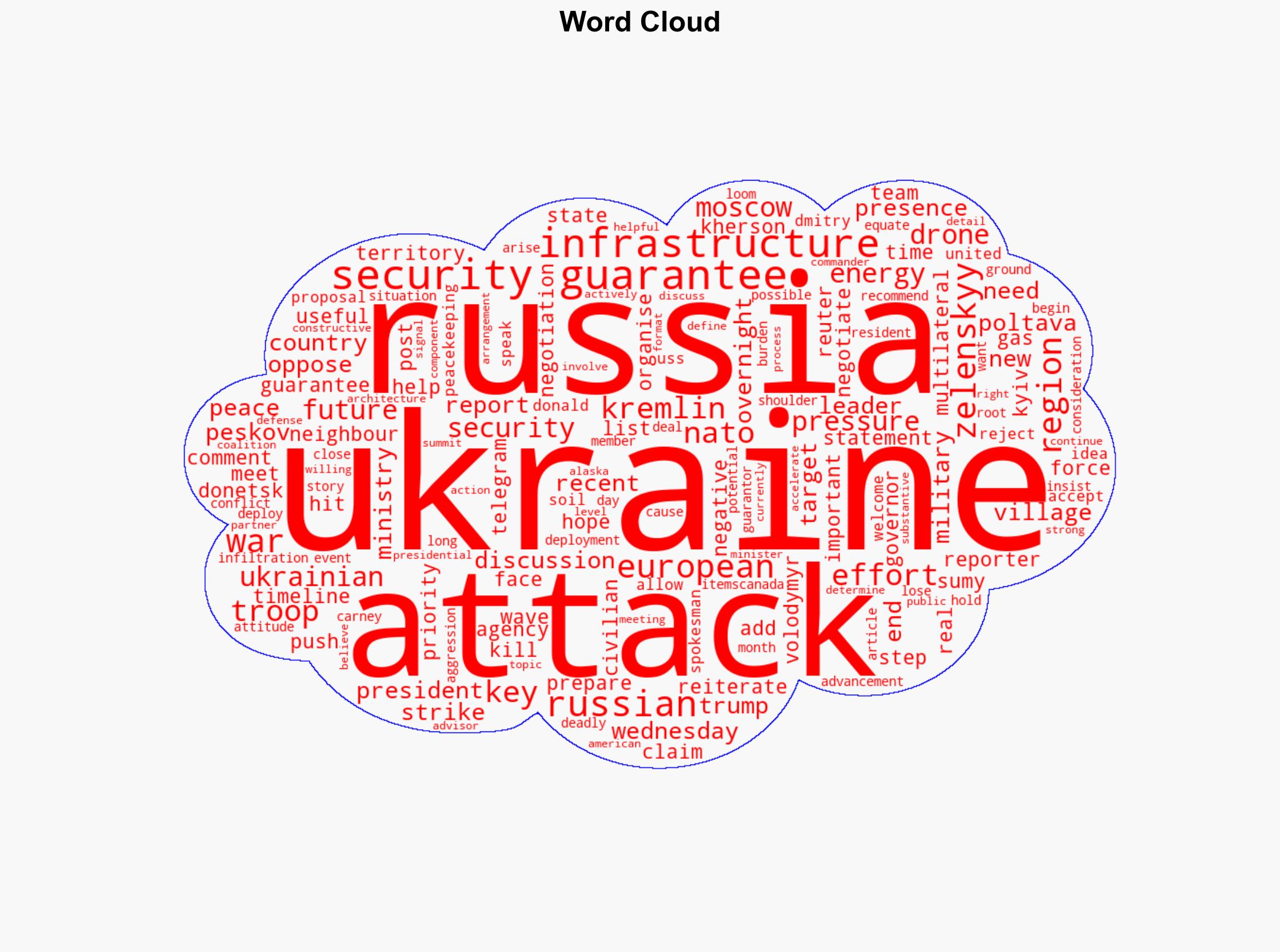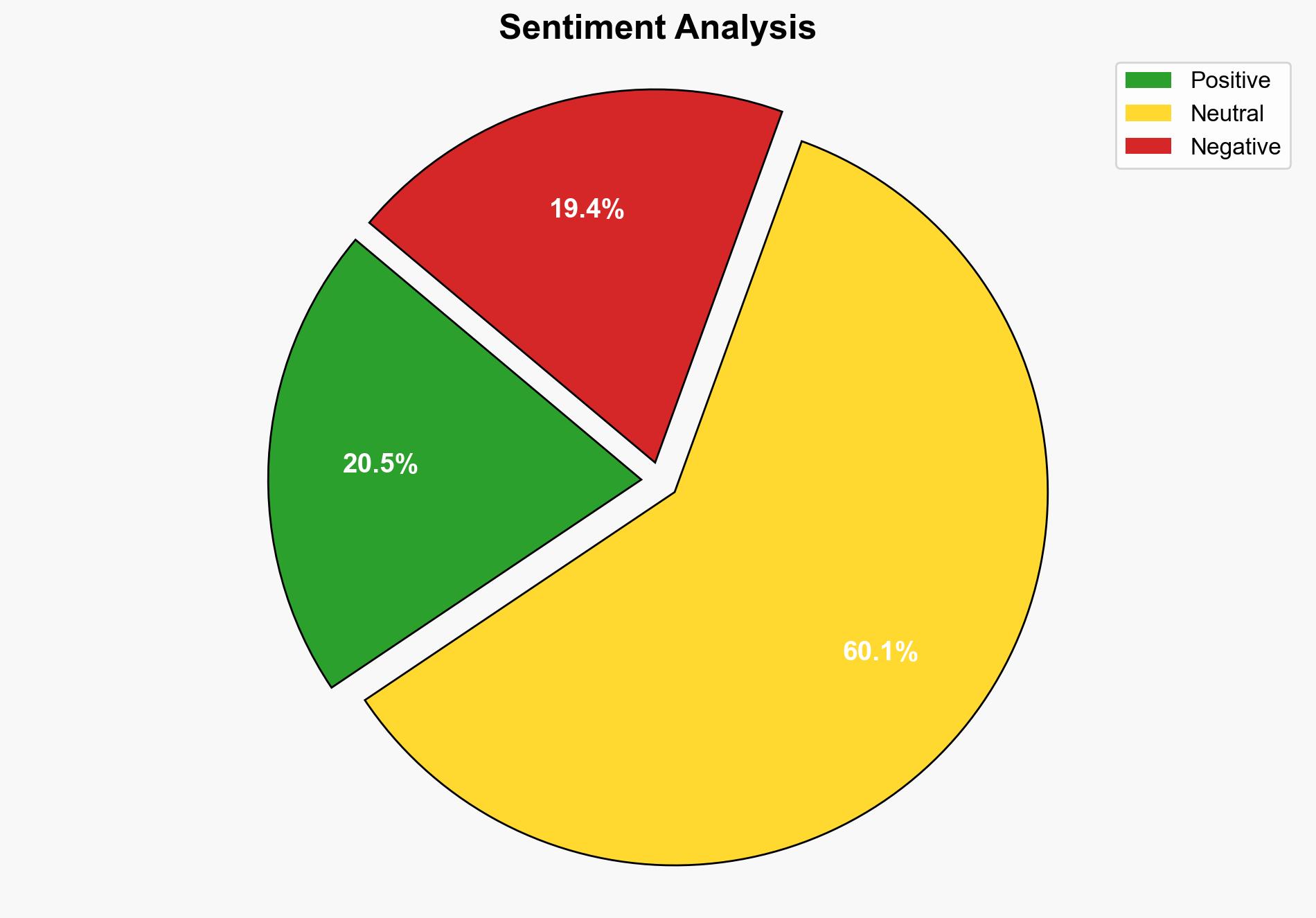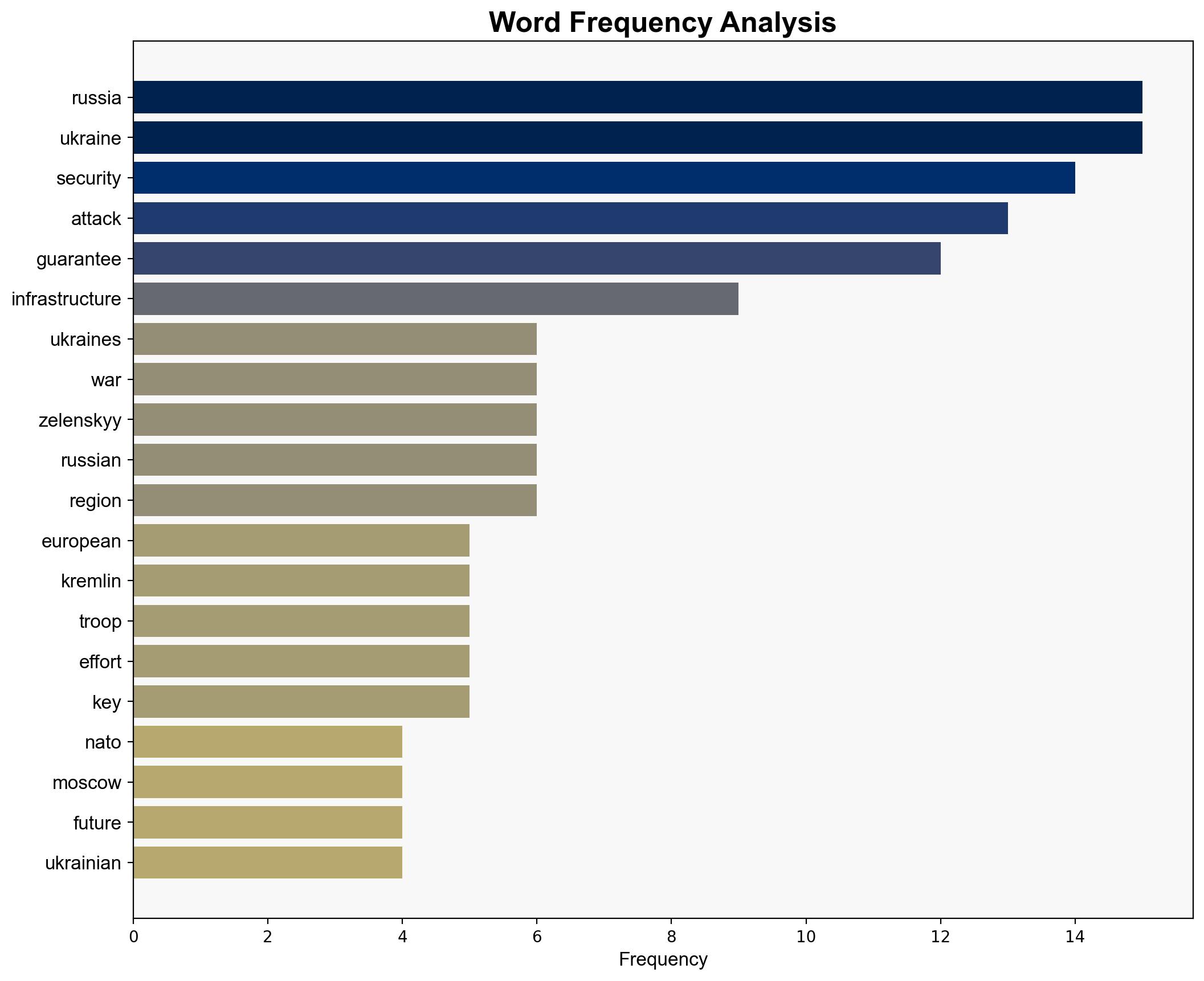Russia opposed to European security guarantees for Ukraine says Kremlin – Al Jazeera English
Published on: 2025-08-27
Intelligence Report: Russia opposed to European security guarantees for Ukraine says Kremlin – Al Jazeera English
1. BLUF (Bottom Line Up Front)
Russia’s opposition to European security guarantees for Ukraine is likely a strategic maneuver to prevent NATO’s influence from expanding in its vicinity. The most supported hypothesis is that Russia aims to maintain strategic leverage over Ukraine by resisting any NATO-related security arrangements. Confidence level: Moderate. Recommended action: Strengthen diplomatic engagements with European allies to ensure a unified approach to security guarantees for Ukraine, while preparing for potential Russian countermeasures.
2. Competing Hypotheses
1. **Hypothesis 1**: Russia’s opposition is primarily driven by a desire to prevent NATO’s military infrastructure from encroaching on its borders, thereby maintaining its sphere of influence over Ukraine.
2. **Hypothesis 2**: Russia’s stance is a negotiation tactic to extract concessions from the West, such as the lifting of sanctions or recognition of its interests in Eastern Europe.
Using ACH 2.0, Hypothesis 1 is better supported due to consistent historical patterns of Russian behavior regarding NATO expansion and statements from Kremlin officials emphasizing security concerns. Hypothesis 2 lacks direct evidence but remains plausible given Russia’s previous negotiation strategies.
3. Key Assumptions and Red Flags
– Assumptions: Russia perceives NATO as a direct threat; Ukraine’s security is a zero-sum game for Russia.
– Red Flags: Lack of transparency in Russia’s true strategic objectives; potential underestimation of Ukraine’s agency in negotiations.
– Blind Spots: The internal dynamics within Russia that might influence its foreign policy decisions are not fully explored.
4. Implications and Strategic Risks
– **Geopolitical**: Continued tension between Russia and NATO could lead to increased militarization of Eastern Europe.
– **Economic**: Potential for further sanctions impacting global markets, particularly energy.
– **Cyber**: Heightened risk of cyber operations targeting critical infrastructure in Ukraine and NATO countries.
– **Psychological**: Erosion of public confidence in European security arrangements if perceived as ineffective.
5. Recommendations and Outlook
- Enhance intelligence-sharing mechanisms among NATO members to anticipate Russian moves.
- Engage in backchannel diplomacy to explore potential compromises with Russia.
- Scenario Projections:
- Best: Russia agrees to a limited, non-NATO security arrangement for Ukraine.
- Worst: Escalation into open conflict involving NATO forces.
- Most Likely: Prolonged stalemate with periodic negotiations and localized skirmishes.
6. Key Individuals and Entities
– Dmitry Peskov
– Volodymyr Zelenskyy
– Donald Trump
7. Thematic Tags
national security threats, geopolitical strategy, NATO-Russia relations, Eastern European security





